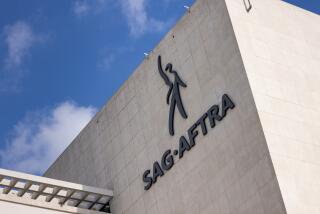System Offers Way to Control Home Tapings : Prevents Reproduction of Copyrighted Music
- Share via
WASHINGTON — A new electronic coding system could prevent consumers from reproducing copyrighted music, the nation’s recording industry told Congress on Tuesday.
The new technology, called copy-coding, offers “a fair, simple, efficient marketplace mechanism to respond to the problem of home taping,” Stanley M. Gortikov, president of the Recording Industry Assn. of America, told the Senate Judiciary subcommittee on patents, copyrights and trademarks.
But a coalition of manufacturers and retailers of audio cassette recorders and tapes immediately charged that the technology would drive up the cost not only of audio recorders but of records, tapes and compact disks as well. They said the result would be “another kind of tax, levied technologically.”
Not Affected
“The consumer ends up paying the record companies for the right to tape records he has already bought,” said Charles D. Ferris, who represents the Audio Recording Rights Coalition.
The coding technology would not affect existing audio recorders, which would still be able to copy all records, tapes and compact disks.
But new recorders would not be able to copy encoded records, tapes and compact disks. Consumers would have the choice of paying a relatively inexpensive price for encoded music that could not be copied or paying more for music that they could copy.
Subcommittee Chairman Charles McC. Mathias (D-Md.) said that this may be a situation where “technology might be able to help the problem that it has helped to create. . . . I cannot help but be intrigued by a technological solution to the home taping problem.”
Mathias has sponsored legislation that would impose a royalty fee on the purchase price of blank tapes and audio recording equipment. The royalty would be passed on to music creators and producers for the home taping of their works.
Special Chips
The new technology was developed by audio engineers at the CBS Technology Center in Stamford, Conn. According to Donald S. McCoy, vice president of technology for CBS, the system consists of two parts.
A device encodes records, tapes and compact disks in a way that is inaudible when they are played back but would confound a new generation of audio recorders equipped with special computer chips. The recorders still could make copies, but they would have regular silent periods of 25 seconds each.
McCoy said the chips will be available for mass production “in the next couple of months.” He estimated that it would cost less than $1 to produce the chips and that they would add about $5 to the cost of manufacturing recorders.
“The copy-code system proves American creators need not be helpless victims of taping technology,” Gortikov told the Senate subcommittee. “It is now clear that the same technical wizardry that has produced machines capable of copying our musical recordings can also produce devices that will protect our musical recordings.”
Opponents of the recording industry argue that the technology is really only another attempt for the recording industry to increase its profits at the expense of consumers.
“Home taping is legal,” Ferris said.
More to Read
The biggest entertainment stories
Get our big stories about Hollywood, film, television, music, arts, culture and more right in your inbox as soon as they publish.
You may occasionally receive promotional content from the Los Angeles Times.










